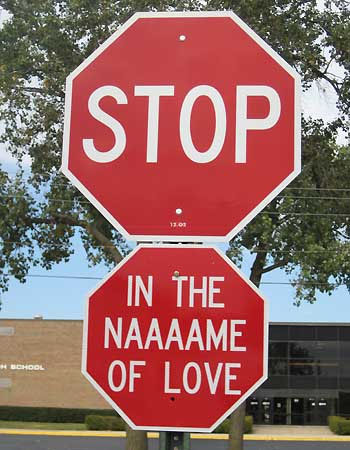Bryan Fischer, director of issue analysis for the American Family Association, a national conservative Christian organization in Tupelo, Miss., said, “What my evangelical friends are arguing is that illegal aliens should essentially be rewarded for breaking the law.Well, sure. It's not as though the core doctrine of Christianity involves redemption and forgiveness for a lifetime of sins. It's certainly not like Jesus told his human followers to offer forgiveness for sins "not seven times, but seventy-seven times."
“I think it’s extremely problematic from a Judeo-Christian standpoint to grant citizenship to people whose first act on American soil was to break an American law,” said Mr. Fischer, who hosts a daily radio show on which immigration is a frequent topic.
Now, I'm not saying that illegal immigrants should be offered amnesty. (Although I think it makes sense, but that's not the point here.) But even though I'm agnostic these days, I have a long background in the church. And I hate to see people blithely invoke "Judeo-Christian" tradition to justify their policy preferences -- particularly when their invocation actually contradicts the religion they use as justification.






